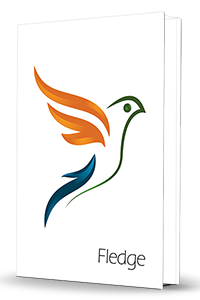Good stories have a beginning, middle, and end…
Stepping back from the details of the program, there is a structure to the 10-week period which most of the fledglings follow.
Weeks 1-3 are about ideation and questioning of assumptions. Most teams arrive with a draft business plan. Some teams arrive with a prototype. Some arrive with customers and revenues. No matter where the stage of the company, the participants are pushed back to the start of the process, to question their assumptions behind their plans, and most importantly, to uncover the unspoken assumptions in their plans.
The core problem being solved is uncovered. Teams are challenged to look at multiple solutions to that problem, not jus the one solution they walk in with.
The Lean Startup philosophy is taught, and the teams challenged to focus on not just their full-scale vision, but on a “minimal viable product” (MVP), ideally that they can launch before the end of the program.
During these first three weeks, teams are encouraged to meet with as many mentors as possible, to help flood them with opinions, advice, sounding boards, and ideas.
Weeks 4-7 are about execution. Teams are encouraged to launch their MVP into the market, and begin to validate their assumptions. For companies with an existing product or service, they are encouraged to talk to potential partners, vendors, and customers, to validate the new ideas considered in the first few week. At a minimum, teams are encouraged to dive deep into market research, and take action to prove that their plan will work.
During these weeks, teams typically stop meeting new mentors. Repeat mentors are encouraged to come back and help provide guidance as the teams determine how to execute their ideas.
Often during these weeks, teams begin to worry about the name of their company, their logo, and their marketing messaging. Large groups of participates across multiple teams often join in to help with the naming process.
Weeks 7-10 are about preparing the on-stage story. Teams are discouraged from worrying about the on-stage presentation until Week 7, as it can be a source of angst and a distraction from business planning and execution.
Starting in Week 7, the classroom time is instead spent in pitch coaching, initially fleshing out a good story, and in the final week, honing that story into an entertaining presentation.
Learning: A deadline is a powerful motivation tool for creating a compelling presentation. Teams will procrastinate on iteration and practice of their presentation until days before the on-stage event. To help alleviate this issue, starting with the third cohort, a preview event will be held at the start of Week 10, creating a deadline days before the big on-stage event, ensuring those presentation are well practiced ahead of time.
Learning: Most accelerators put Demo Day at the very end of their program. Based on an idea from the Unreasonable Institute, the Fledge6 Demo Day was on Week 8 of 10, and the Fledge7 Demo Day on the Tuesday of Week 10. In both cases, separating the stress of Demo Day from the stress of ending the program was of great benefit to the participants. The participants have other goals of the program beyond an on-stage talk, and having 3 or 4 days to work on those was far better than just 1. In both Fledge6 and Fledge7, the hope was to get some of the audience to come back to talk to the fledglings 1-on-1 after Demo, before the end of the program. That unfortunately did not happen.
Next Chapter »»









